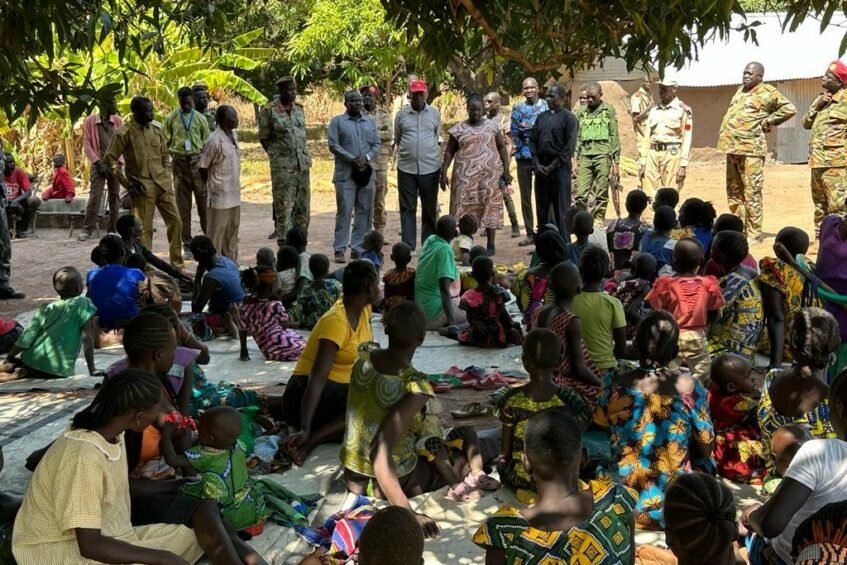Relative calm has returned to Kedi’ba Payam in Mundri East County, Western Equatoria State, following the deployment of government security forces to the area after weeks of tension and displacement that forced thousands of civilians to flee their homes.
Local authorities have confirmed that more than 4,000 internally displaced persons (IDPs) have now started returning to their homes after nearly a month of living in fear and uncertainty.
The area was among those worst affected by late September’s armed clashes between rival factions of the Sudan People’s Liberation Movement in Opposition (SPLM-IO) and the South Sudan People’s Defence Forces (SSPDF).
Government Assures Security, Appeals for Humanitarian Support
Speaking to The City Review on Thusday, Mundri East County Commissioner, Hon. John Henry Ngulamu, assured residents of the government’s commitment to protecting civilians and restoring stability in the region.
“The government has deployed sufficient forces to restore calm and guarantee the safety of our citizens,” Ngulamu said. “We want our people to know that peace is returning. However, we urgently appeal to humanitarian partners to support the returnees with food, shelter, and other basic necessities.”
The commissioner emphasized that despite the relative calm, the scars of displacement remain visible, with many families returning to find their homes looted or destroyed.
Ngulamu also renewed his appeal to all armed actors in the region to fully adhere to the 2018 Revitalized Peace Agreement, stressing that dialogue, not violence, is the only path toward lasting stability in Western Equatoria.
“We cannot afford to let our communities continue to suffer because of recurring violence,” he added. “I call on all the fighting parties to respect the peace deal and work together for the good of our people.”
The clashes that broke out in late September forced more than 30,000 civilians to flee into nearby bushes, churches, and schools across Kedi’ba, Magiri, and Wandi Payams, leaving behind farms and property. Local humanitarian groups report that many returnees are now facing acute shortages of food, clean water, and medicine.
One returnee, Sarah Lado, described the difficult weeks her family endured while hiding in the bush:
“We survived on wild fruits and river water for weeks. Now that peace has returned, we are grateful, but we have nothing left. We need help to rebuild our lives.”
Local government officials are working with the Relief and Rehabilitation Commission (RRC) and humanitarian partners to assess the scale of the displacement and mobilize assistance for returnees. Emergency food and non-food items are expected to be delivered in the coming days.
A member of the county peace committee, Reverend Daniel Musa, said the church is also playing an active role in reconciliation efforts.
“The church is encouraging forgiveness and unity,” he said. “We are visiting affected families and calling for an end to retaliation. Only peace can heal our wounds.”
Despite the heavy losses, optimism is slowly returning among residents as normal life begins to resume in villages that were once deserted. Markets have reopened, and some schools are preparing to welcome learners back to class.
“We thank the authorities for restoring security,” said Mary Francis, a teacher in Kedi’ba. “What we need now is food support, school materials, and rehabilitation of our community centers so that we can move forward.”
As calm prevails in Kedi’ba and neighboring areas, community leaders and government officials are calling on all stakeholders to sustain peacebuilding efforts and ensure that displaced families can rebuild their lives in dignity and safety.
